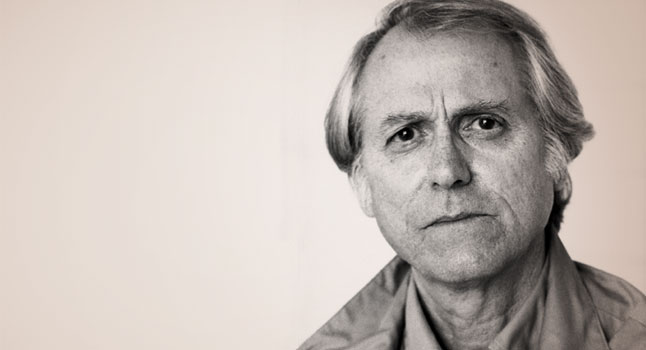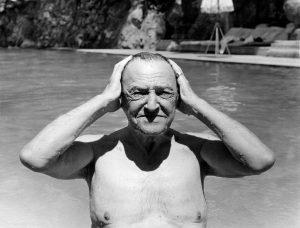by Andrea Scrima
Adapted from a talk given on April 28, 2017 at the New School, New York City, as part of The Body Artist: A Conference on Don DeLillo.

For some readers, Don DeLillo is a guy thing: an immensely gifted geek whose male characters are incapable of emotional communication; whose dialogue sounds more like the brilliant inner monologues of a mind challenging its own assumptions than individual expressions of distinct personalities; who has examined, analyzed, and celebrated American culture with a wistful nostalgia for baseball, poker, fistfights, and billiards, the kind of rough-and-tumble male bonding that redeems unremarkable domestic existence. Whatever his weaknesses might be, most would agree that DeLillo is a wary paranoiac with an uncanny ability to predict, well in advance, shifts in culture, technology, and the communication media and their effects on individual and collective psychology and to express these phenomena in evocative and hypnotic prose. DeLillo speaks powerfully to American obsessions: our anxiety at being alive, our fear of death, the way in which our efforts to transcend ourselves in some meaningful way are stymied by a culture that both engenders and entraps us. The question now is whether his work can help us analyze the unprecedented political situation we find ourselves in today.
I’ve been living in Berlin for over thirty years. Live outside your native culture long enough, and you begin to see it as a sort of double exposure in which your sense of family and identity and belonging is overlaid with a strange, shape-shifting disturbance pattern in which everything seems normal until it suddenly doesn’t, and you begin to see the country from a foreigner’s point of view. For as long as I can remember, America has enjoyed its superpower status, exporting the products of its creative industries around the globe, often through aggressive means, and showing little sustained interest in the cultures of other countries. Lawrence Venuti, the translation theorist, has spoken of “a trade imbalance with serious cultural ramifications” resulting in “a complacency in Anglo-American relations with cultural others, a complacency that can be described—without too much exaggeration—as imperialistic abroad and xenophobic at home.” Only a tiny percentage of all publications in the United States are works in translation, meaning that we have comparatively meager resources to examine our society and culture in comparison to other societies and cultures, and that this impedes our ability to reflect objectively on ourselves.
What does this have to do with Don DeLillo? Read more »

